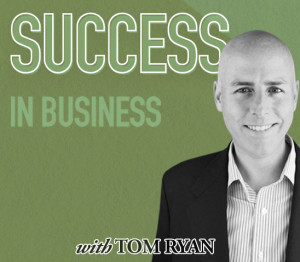 When a business partnership goes bad, the results can easily rival even the messiest romantic breakup. Founders’ breakups are an all-too-common problem in the startup world, and most entrepreneurs have a story or two about the business meltdowns and broken friendships that happen when the people who started a company together no longer see eye to eye. I even have a pretty good one of my own.
When a business partnership goes bad, the results can easily rival even the messiest romantic breakup. Founders’ breakups are an all-too-common problem in the startup world, and most entrepreneurs have a story or two about the business meltdowns and broken friendships that happen when the people who started a company together no longer see eye to eye. I even have a pretty good one of my own.
But just because it’s a common story doesn’t mean that painful founders’ breakups are inevitable. Handled correctly, it’s possible to avoid many of the simple blunders that create high tension between founders. Let’s take a look at a few tips for avoiding the business-breakup drama.
1. Decide Who Is Doing What: It’s easy to be idealistic when you’re launching a startup, and to believe that all the partners can have an equal say in the direction of the business. While I support that outlook, in practice it never quite works. At the end of the day, the founders need to have clearly defined roles just to avoid stepping on each others’ toes and undermining each others’ decisions.
2. Someone Needs To Have The Final Say: There are some decisions where one person needs to make the final call, even over the objections of the other founders. Some of the toughest decisions to make are the ones that simply can’t be made by committee. In equal partnerships, this can be tricky, because it establishes one founder as the “boss” to a certain extent, even if they’re an equal owner. It’s absolutely necessary for the buck to stop with someone if you want to maintain any kind of sanity in those tough spots. Establishing this authority first, and making it clear why one specific founder will have that final say, is much better than having it happen on the fly.
3. Talk It Out: One of the biggest challenges I faced as a young entrepreneur was learning to communicate with my co-founders. Making sure that everyone is on the same page is important, as is being aware of any challenges or problems the others are facing. At the same time, it’s important to own up to any problems you’re having, particularly when they effect the other founders. Addressing a concern or frustration early, rather than letting it go undiscussed until it boils over, will go a long way towards keeping things cool.
4. Anticipate Friction: When I start a business today, one of the first conversations I have with my potential partners goes something like this: “I know we don’t plan to, but if we have a serious disagreement about the direction of the business, how will we resolve it?” Simply establishing a method for settling disagreements can prevent countless future frustrations. Having this conversation up front, long before there are any serious problems, provides the founders with a framework for working through issues before they get out of hand.
5. Lean On Your Advisors: One of the most useful things a board of advisors, a business coach or other mentor can provide your business is rational, emotionally cool feedback on conflict between founders. While these advisors aren’t always truly neutral or completely unbiased, good ones will be able to bring a degree of emotional distance and critical perspective to most disagreements. They can also help smooth over any misunderstandings or bruised egos that have happened along the way.
6. Consider Counseling And Other Resources: A surprising number of the entrepreneurs I work with are married couples who have founded businesses together. As a result, I’ve seen some great business results come from couples’ counseling. Applying the same idea — ongoing counseling and communication help — for business partners and co-founders, isn’t the worst idea. There are a variety of counselors and coaches out there who offer just this kind of service.
These tips might not stop a founders’ breakup — sometimes, nothing can — but they can help to reduce the sting and bruising that happens when startup partnerships go south.
